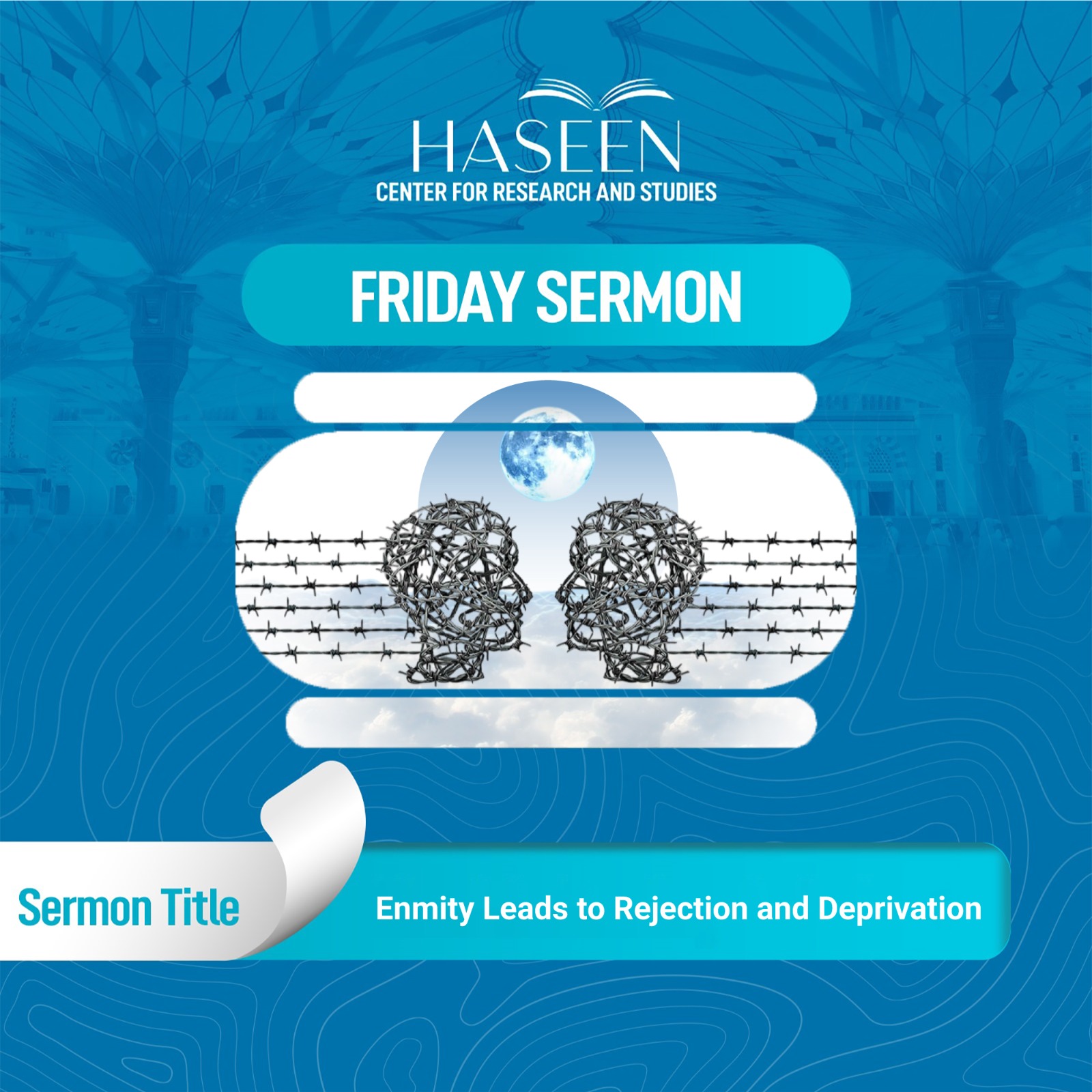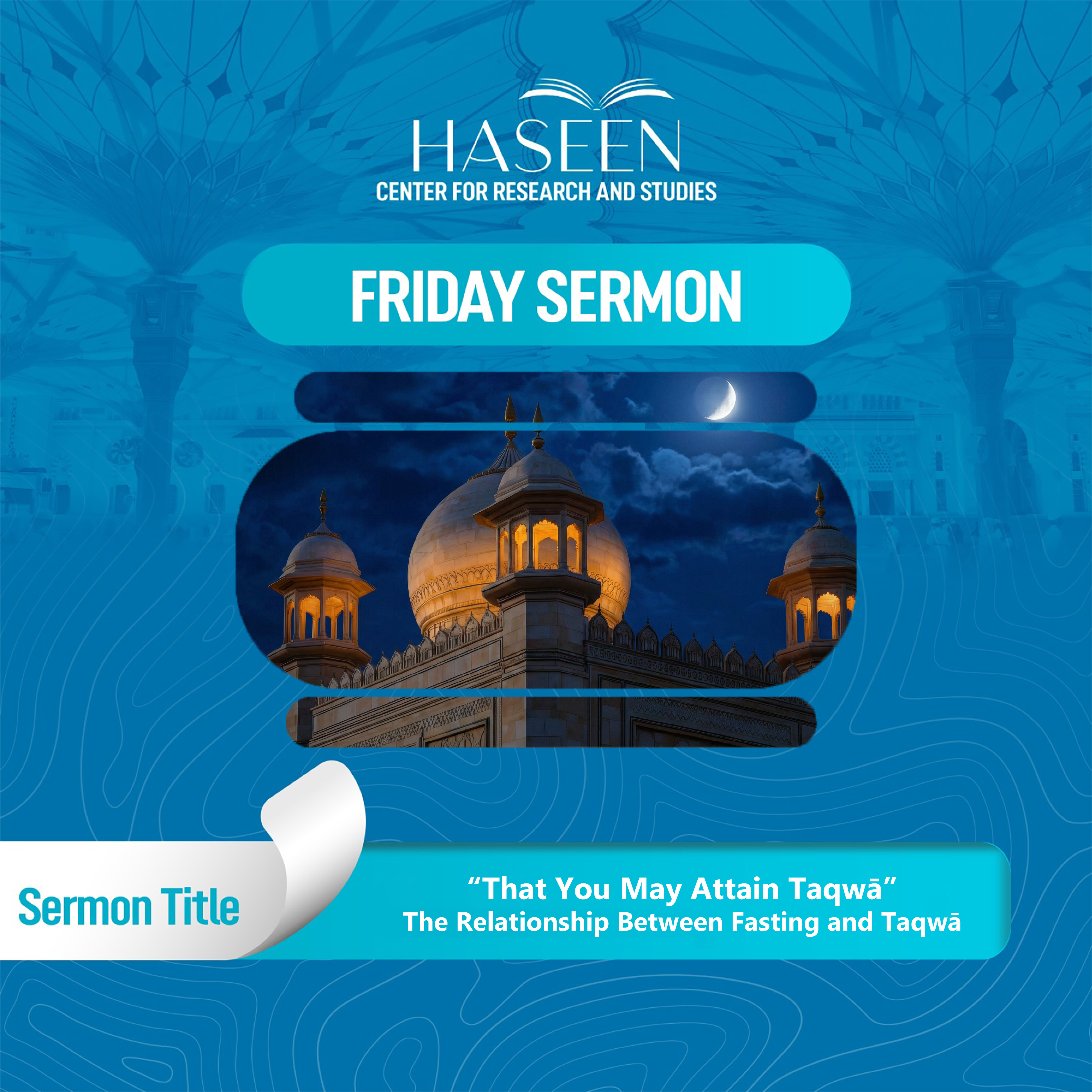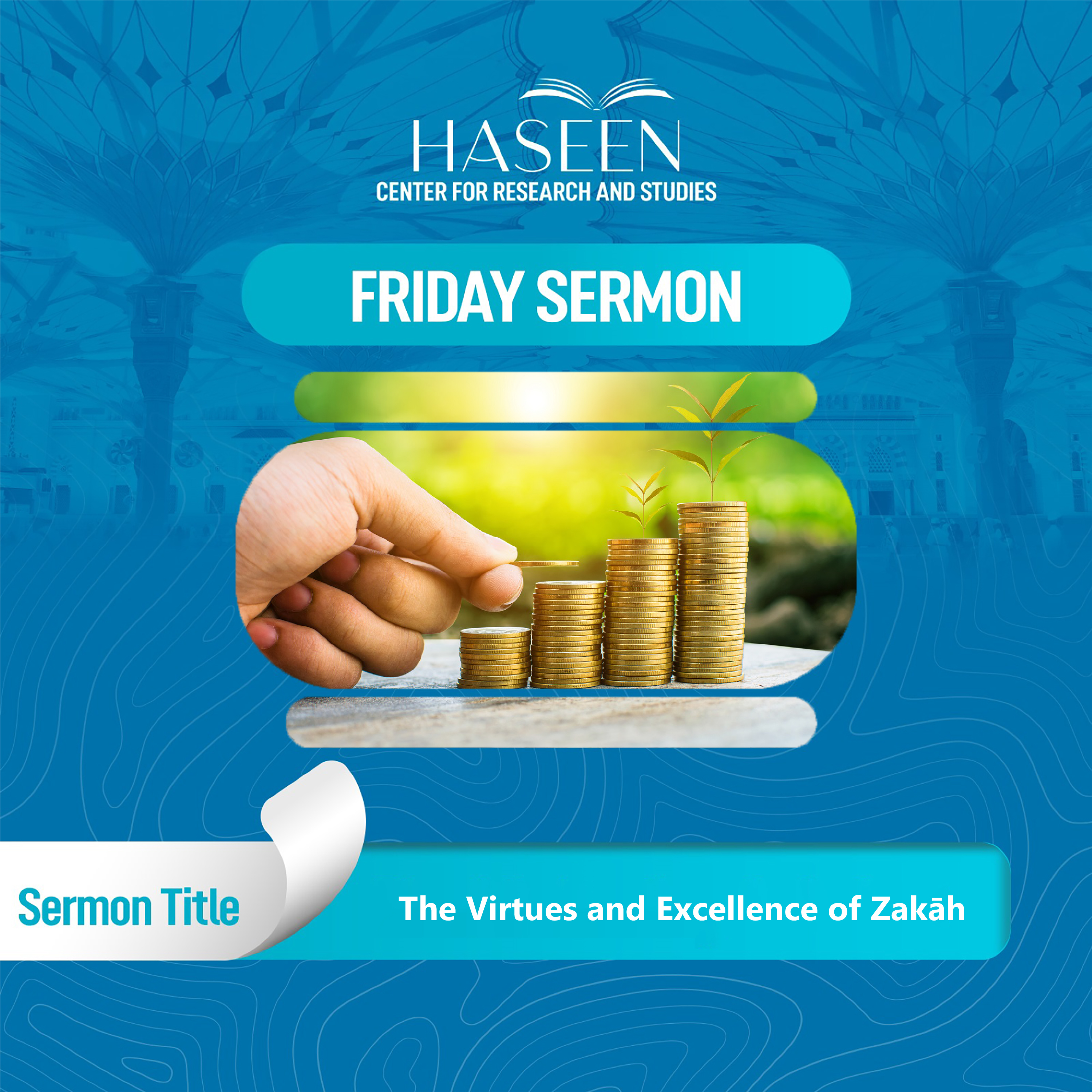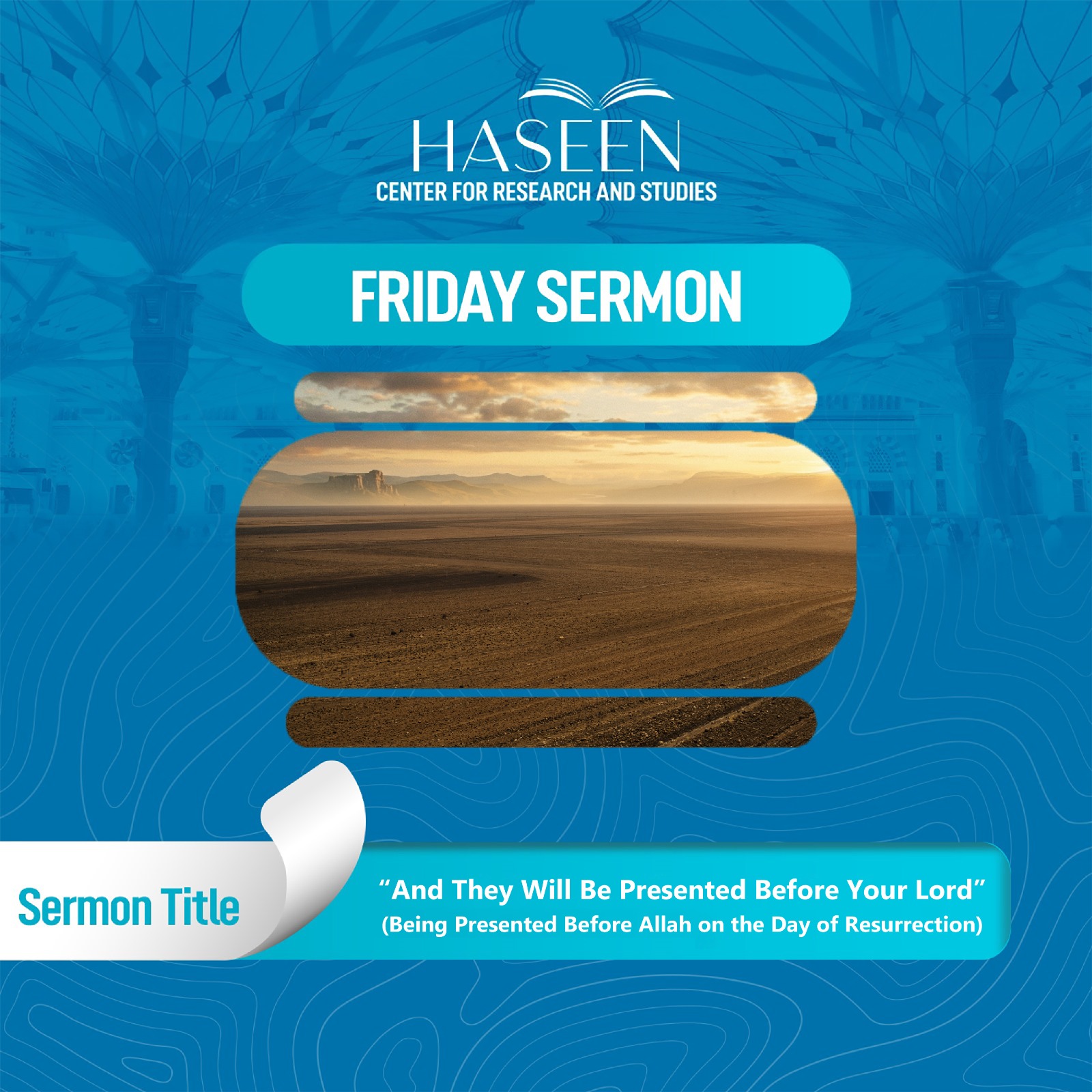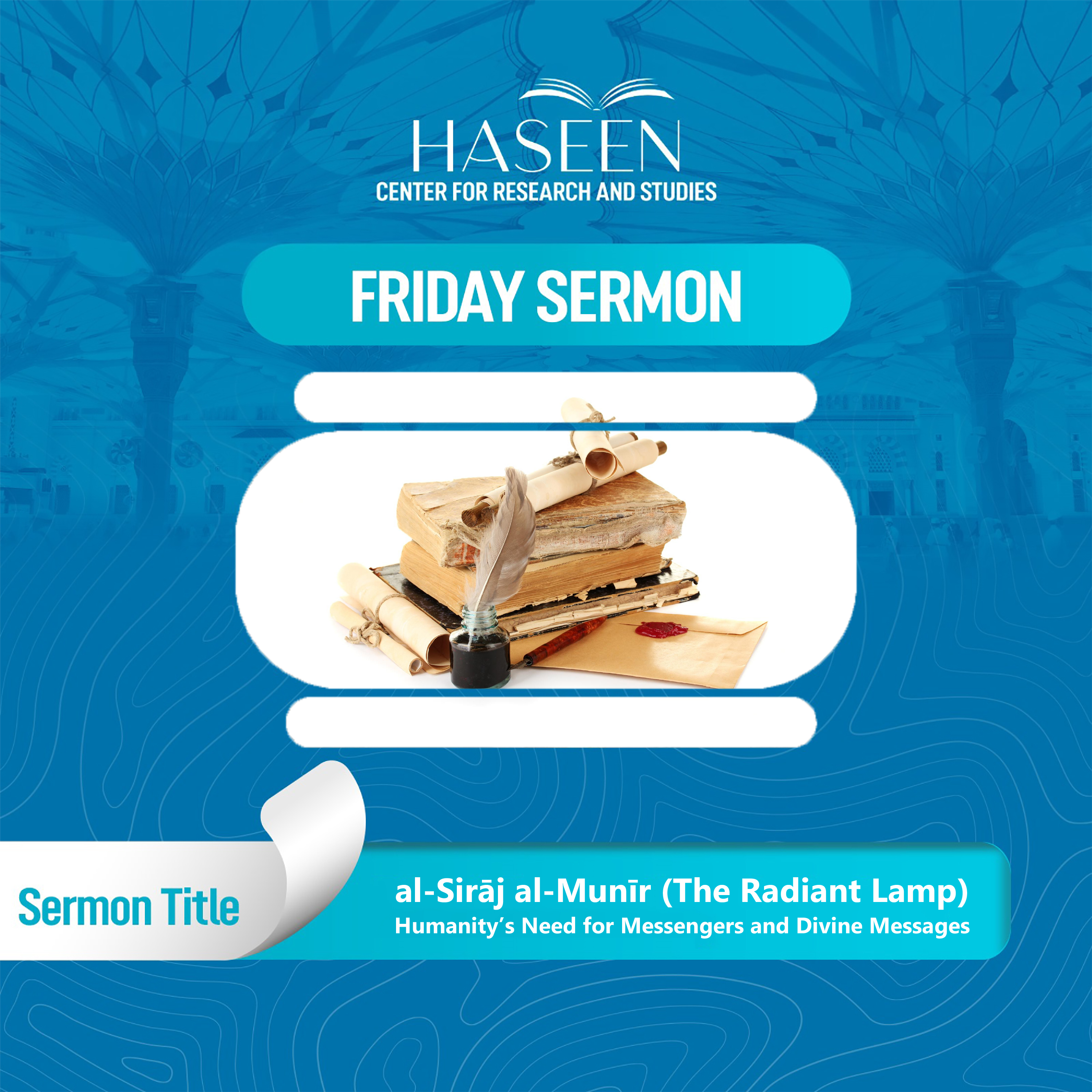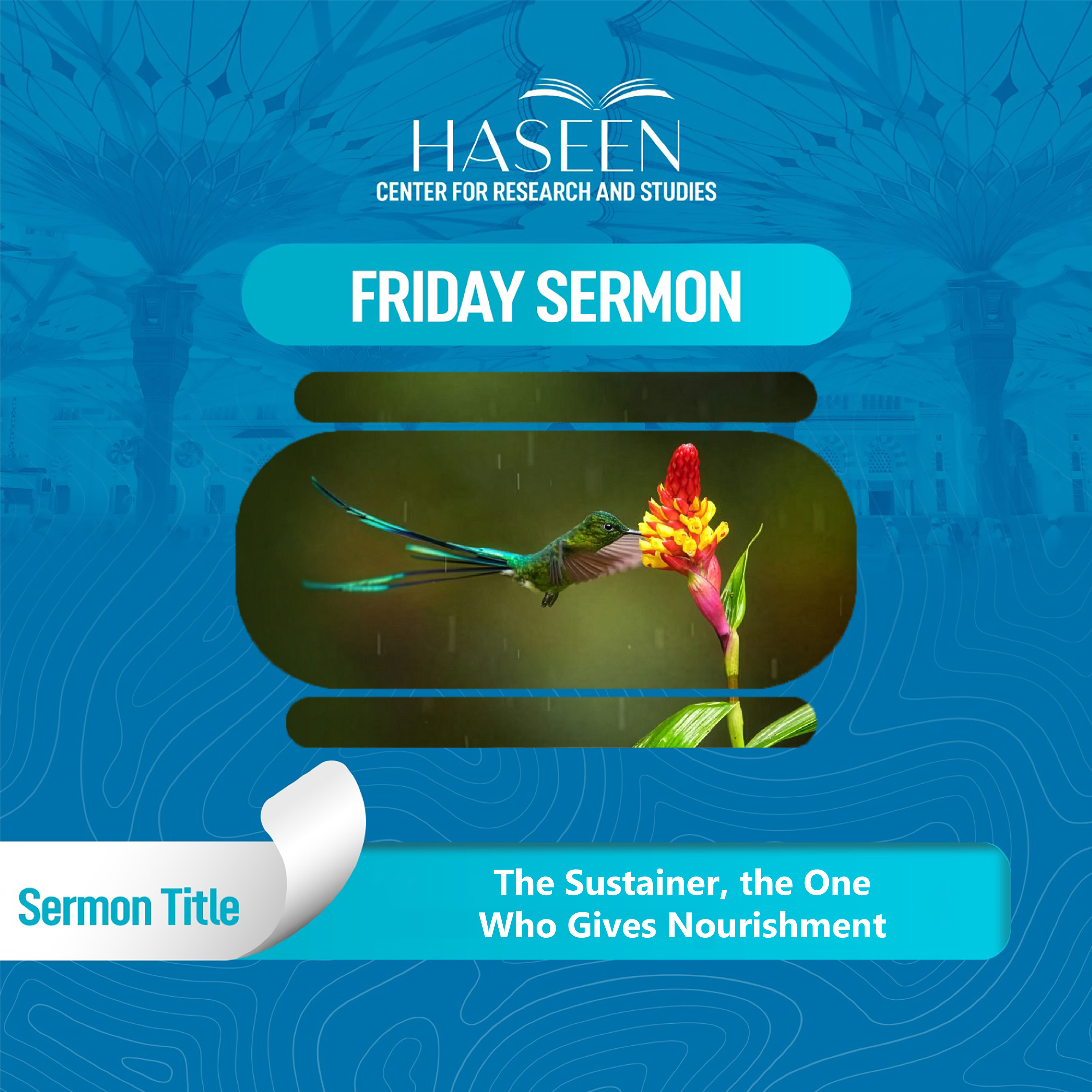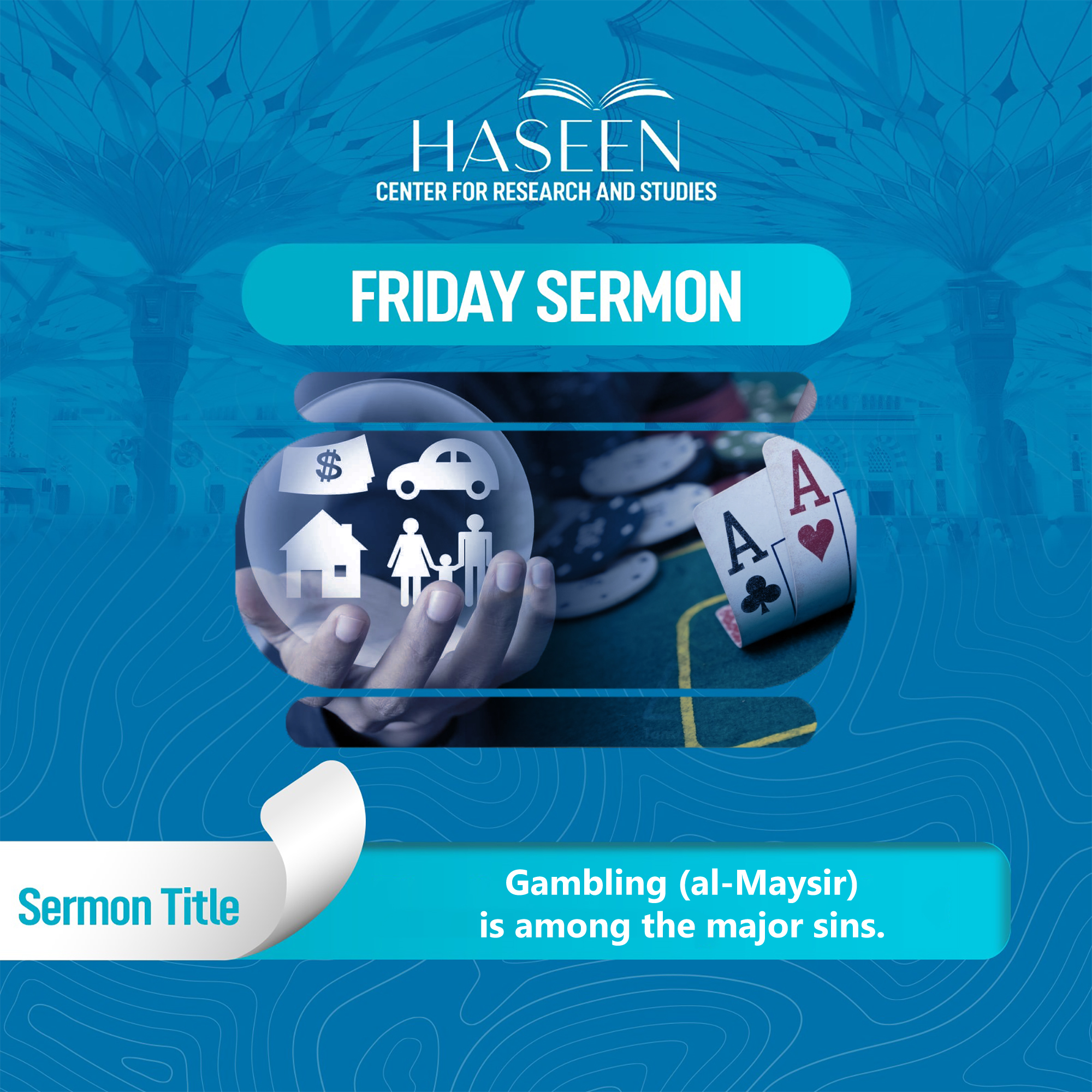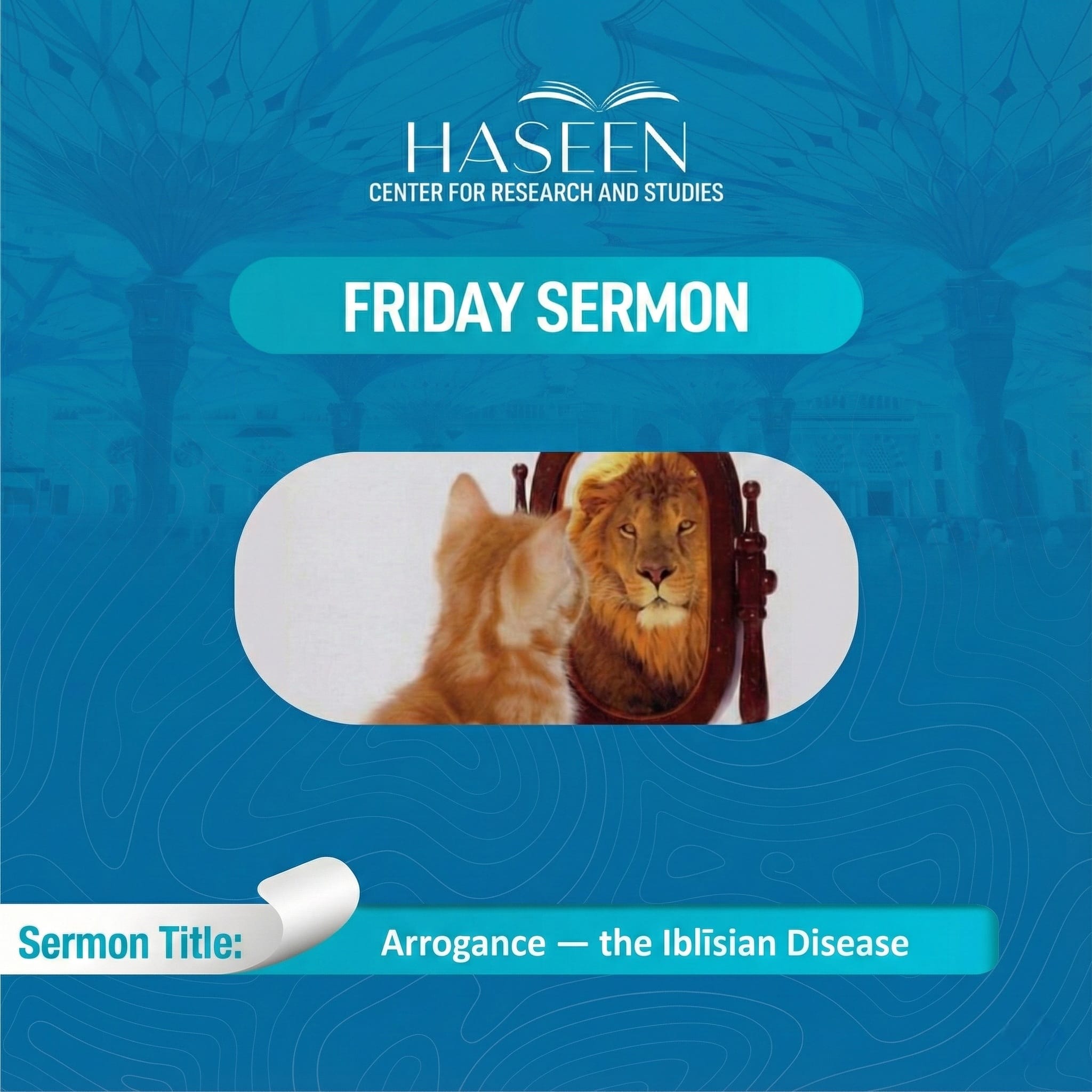Title of Sermon: Enmity Leads to Rejection and Deprivation
Elements of Sermon:
Enmity deprives one of Allah’s forgiveness.
The prohibition of hatred and hostility.
The path to a pure and sound heart.
Servitude to worldly desires breeds hatred and enmity.
All praise be to Allah, the Most Generous and Blessed, who accepts acts of obedience through His mercy, forgives sins through His pardon, relieves burdens through His kindness, and purifies hearts from grudges and enmity through His compassion. I bear witness that there is no deity worthy of worship except Allah alone, with no partner, and I bear witness that Muhammad is His servant and messenger, the foremost in righteousness. May Allah’s peace and blessings be upon him in abundance.
Fear Allah, servants of Allah, as He should be feared, and be mindful of Him in both private and public:
يَا أَيُّهَا الَّذِينَ آمَنُوا اتَّقُوا اللَّهَ حَقَّ تُقَاتِهِ وَلَا تَمُوتُنَّ إِلَّا وَأَنْتُمْ مُسْلِمُونَ
"O you who believe, fear Allah as He should be feared and do not die except as Muslims." [Aal 'Imran: 102]
We are in these days when our deeds are presented before the Lord of the worlds.
It is a profound moment when the deeds of the servants are displayed before Allah every Monday and Thursday, and annually in the month of Sha'ban. Each time deeds are presented, Allah forgives His servants—except for two types of people.
Do you know who these two unfortunate individuals are, who are deprived of this mercy?
The first is the one who associates partners with Allah. The second is the one who harbors enmity and resentment against his brother—a state of hostility and animosity without a just cause.
The Prophet ﷺ said: "Deeds are presented every Monday and Thursday, and Allah forgives every servant who does not associate anything with Him, except for a man who harbors enmity toward his brother. It is said, 'Delay these two until they reconcile. Delay these two until they reconcile. Delay these two until they reconcile.'" (Narrated by Muslim)
As for the annual presentation of deeds in Sha'ban, the Prophet ﷺ mentioned its virtue, saying: "It is a month in which deeds are raised to the Lord of the worlds." (Narrated by An-Nasa’i)
On the night of mid-Sha'ban, Allah observes His creation and either grants them mercy or denies it. He showers His mercy upon those who uphold monotheism and unity while withholding it from those who commit shirk or engage in hostility.
The Prophet ﷺ said: "Indeed, Allah looks at His creation on the night of mid-Sha'ban and forgives all of them, except for the one who associates partners with Him or the one who harbors enmity." (Narrated by Ibn Majah)
Hatred, resentment, and enmity are among the most dangerous diseases of the heart. They weaken a person's faith, divide the Muslims, and erode their strength.
This is why the Prophet ﷺ described these traits as "the razor"—not the razor that shaves hair, but the razor that shaves away one’s faith and piety.
The Prophet ﷺ said: "The disease of previous nations has crept into you: envy and hatred. It is the razor. I do not mean that it shaves hair, but rather it shaves away the religion." (Narrated by At-Tirmidhi)
Enmity and resentment drive people to harbor grudges and jealousy, to engage in backbiting and gossip, to ridicule and belittle others, and even to slander and fabricate lies. It can even escalate to oppression and murder.
Thus, one of the greatest deceptions of Shaytan is stirring enmity and discord among Muslims.
The Prophet ﷺ said: "Indeed, Shaytan has despaired of being worshiped in the Arabian Peninsula, but he is content with inciting discord among them." (Narrated by Muslim)
Islam has placed strong safeguards against anything that fosters hostility and hatred among believers.
Allah forbade alcohol and gambling because they lead to animosity and discord among Muslims. Allah said:
إِنَّمَا يُرِيدُ الشَّيْطَانُ أَنْ يُوقِعَ بَيْنَكُمُ الْعَدَاوَةَ وَالْبَغْضَاءَ فِي الْخَمْرِ وَالْمَيْسِرِ
"Indeed, Shaytan seeks to sow enmity and hatred among you through intoxicants and gambling." [Al-Ma'idah: 91]
Allah commanded believers to speak with kindness so that Shaytan does not incite conflict among them:
وَقُلْ لِعِبَادِي يَقُولُوا الَّتِي هِيَ أَحْسَنُ إِنَّ الشَّيْطَانَ يَنْزَغُ بَيْنَهُمْ إِنَّ الشَّيْطَانَ كَانَ لِلْإِنْسَانِ عَدُوًّا مُبِينًا
"And tell My servants to say that which is best. Indeed, Shaytan sows discord among them. Surely, Shaytan is a clear enemy to mankind." [Al-Isra: 53]
The Prophet ﷺ prohibited hatred, envy, and cutting ties, urging Muslims to maintain brotherhood: "Do not hate one another, do not envy one another, do not turn away from one another, but rather be servants of Allah as brothers. It is not lawful for a Muslim to abandon his brother for more than three days." (Narrated by Al-Bukhari and Muslim)
Servants of Allah,
The essence of Islam is the submission of the heart to Allah, its sincerity to Him, and its purity towards the Muslims.
A man once asked the Messenger of Allah ﷺ, "What is Islam?" He replied: "That your heart submits to Allah, and that Muslims are safe from your tongue and your hand." (Narrated by Ahmad)
A true believer has a sound heart and a pure soul towards all Muslims. He loves for his fellow Muslim what he loves for himself and dislikes for him what he dislikes for himself.
Did not our Prophet ﷺ say: "None of you truly believes until he loves for his brother what he loves for himself"? (Narrated by Al-Bukhari and Muslim)
Look at the noble scholar of this ummah, Abdullah ibn Abbas (may Allah be pleased with both of them). One day, a man insulted him, yet he responded: "You insult me while I possess three qualities: When I come across a verse of Allah’s Book, I wish that all people would know from it what I know. When I hear of a just ruler among the Muslims, I rejoice, even though I may never have to stand before him for judgment. And when I hear of rainfall upon a land of the Muslims, I rejoice, even if I have no livestock there." (Narrated by At-Tabarani)
A true believer is free of malice, envy, hatred, and hostility towards any Muslim. Such a person is the best of people in the sight of Allah.
A man once asked the Messenger of Allah ﷺ, "Who is the best among people?" He replied: "Every person with a pure heart and a truthful tongue." They asked, "We understand a truthful tongue, but what is a pure heart?" He replied: "It is the heart that is pious and pure, free of sin, transgression, resentment, and envy." (Narrated by Ibn Majah)
But how can one attain a heart that is free of malice and hatred?
First, by turning to Allah and asking Him to grant a sound heart.
The Prophet ﷺ used to supplicate: "I ask You for a sound heart." (Narrated by At-Tabarani)
And he would pray: "Remove from my heart any resentment." (Narrated by At-Tirmidhi), meaning, take away any ill-feeling towards any Muslim.
The first to whom the believers should have pure hearts are the Companions of the Prophet ﷺ. Allah praised those who come after them with hearts free of resentment towards them, saying:
وَالَّذِينَ جَاءُوا مِنْ بَعْدِهِمْ يَقُولُونَ رَبَّنَا اغْفِرْ لَنَا وَلِإِخْوَانِنَا الَّذِينَ سَبَقُونَا بِالْإِيمَانِ وَلَا تَجْعَلْ فِي قُلُوبِنَا غِلًّا لِلَّذِينَ آمَنُوا رَبَّنَا إِنَّكَ رَءُوفٌ رَحِيمٌ
"And those who came after them say: Our Lord, forgive us and our brothers who preceded us in faith, and do not place in our hearts any resentment toward those who have believed. Our Lord, indeed You are Kind and Merciful." [Al-Hashr: 10]
A heart that is pure belongs to Allah alone, sincere in its devotion, with no desire except what pleases and is willed by its Lord. A heart becomes sound when it worships none but Allah, loving for His sake, hating for His sake, giving for His sake, and withholding for His sake.
The Prophet ﷺ said: "Whoever loves for the sake of Allah, hates for the sake of Allah, gives for the sake of Allah, and withholds for the sake of Allah, has perfected faith." (Narrated by Abu Dawud)
Thus, a believer's love and hatred stem from his devotion to Allah. How, then, can a believer harbor resentment towards another Muslim who affirms the oneness of Allah?
Among the greatest means of attaining a pure heart is adhering to the commands of Allah in their entirety, without selective obedience. Allah informed us that when the Christians neglected parts of His teachings, He caused enmity and hatred to arise among them:
وَمِنَ الَّذِينَ قَالُوا إِنَّا نَصَارَى أَخَذْنَا مِيثَاقَهُمْ فَنَسُوا حَظًّا مِمَّا ذُكِّرُوا بِهِ فَأَغْرَيْنَا بَيْنَهُمُ الْعَدَاوَةَ وَالْبَغْضَاءَ إِلَى يَوْمِ الْقِيَامَةِ
"And from those who say, 'We are Christians,' We took their covenant, but they forgot a portion of what they were reminded of, so We caused enmity and hatred among them until the Day of Resurrection." [Al-Ma'idah: 14]
May Allah bless me and you through the Great Qur'an, and may He benefit us through its verses and wise reminders. I seek Allah’s forgiveness for myself and for you, so seek His forgiveness. Indeed, He is the Most Forgiving, the Most Merciful.
Second Sermon
All praise is due to Allah, and may peace and blessings be upon the Messenger of Allah, his family, his companions, and those who follow him.
One of the greatest causes of enmity and hatred among Muslims is rivalry over worldly matters. When the love of this world takes hold of hearts, its seekers fight over it. A person enslaved to worldly possessions will resent anyone who surpasses him in wealth, status, or material gains, no matter how insignificant they may be.
Look at the brothers of Yusuf—what drove them to commit such injustice against their own brother and father except their desire for status and favor in their father’s eyes?
Here is the Commander of the Faithful, Umar ibn Al-Khattab, receiving a great sum of war spoils. As he looks upon it, he begins to weep. Someone asks, "O Commander of the Faithful, what makes you weep?" He responds: "By Allah, no people have ever been given such wealth except that enmity and hatred arose among them." (Narrated by Ahmad in Az-Zuhd)
What protects a believer’s heart from such feelings is his firm faith in Allah, the All-Knowing, the Most Wise, the Provider. He has apportioned sustenance among His creation with wisdom and mercy. If He were to grant them unrestricted wealth, they would transgress upon the earth. A believer must also recognize that this world is not a place of ultimate bliss; rather, it is a realm of trial and purification. It holds no real value in the sight of Allah—it is not even worth the wing of a mosquito. Allah may withhold worldly possessions from His servant, not out of disregard for him, but because He intends good for him. The true measure of virtue in the sight of Allah is piety and righteous deeds.
O Allah, grant victory to Islam and honor the Muslims. Destroy the Zionist oppressors and criminals. O Allah, send tranquility into the hearts of those striving in Your cause. Grant relief to Your oppressed servants and raise high the banner of the religion with Your strength, O Mighty and Firm One.
O Allah, grant us security in our lands, rectify our leaders and those in authority over us, and entrust our affairs to those who fear You, seek Your pleasure, and follow Your guidance.
Our Lord, grant us good in this world and good in the Hereafter, and protect us from the torment of the Fire.


